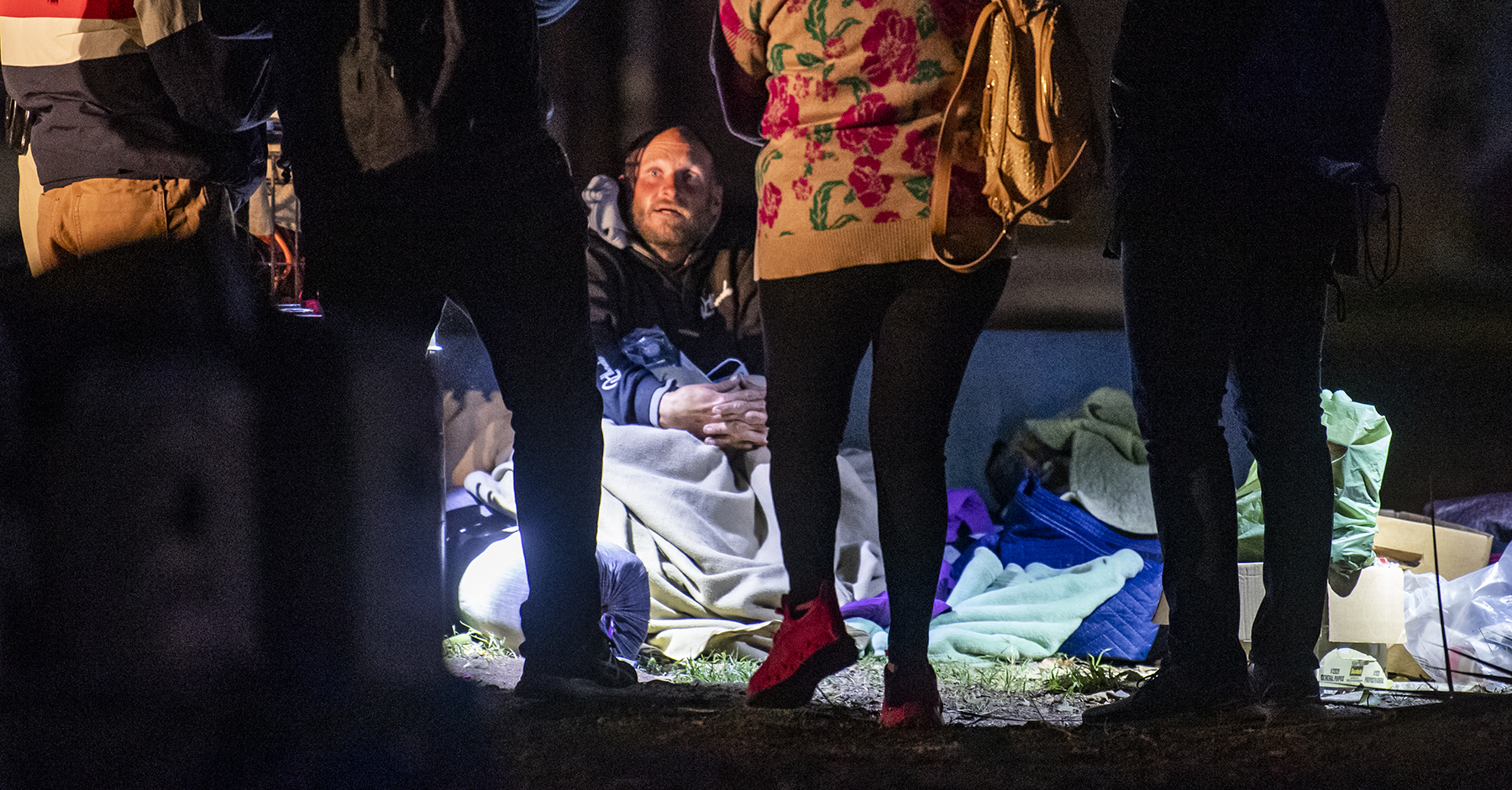The Long Beach City Council officially declared a state of emergency for homelessness Tuesday, joining Los Angeles city and county as jurisdictions that have made similar declarations over the growing unhoused population in the region.
Long Beach’s homeless population grew by 62% from 2020 to 2022, according to the city’s annual count conducted in February, which found roughly 3,300 people living in the city in some state of homelessness. About 2,300 of those were living on the streets or in their cars.
Countywide, about 69,000 people were found to be experiencing homelessness.
Mayor Rex Richardson said the long-simmering issues of housing affordability and homelessness reached a breaking point during the COVID-19 pandemic that first hit the country in March 2020.
“The pandemic has exacerbated that crisis, and when you add that on top of skyrocketing housing costs, inflation and the mental health crisis manifesting itself on our streets, we are in a state of emergency,” Richardson said.
Tuesday’s vote, which was unanimous, comes at a time when politicians are facing immense pressure to address homelessness in the city.
Long Beach voters said it was their top issue heading into the 2022 election season, and Downtown residents and business owners have demanded that the city take action to address the economic and public safety issues they say unhoused people are contributing to.
The city’s winter shelter that opened last month is full, and the city is now in the process of looking for an additional site to house more people during the cold winter months.
“There’s just not enough capacity to house all those that need shelter at this time,” said Health and Services Director Kelly Colopy, who added that the city has about 1,300 shelter beds.
The declaration was requested by new Long Beach Mayor Rex Richardson and Councilmember Mary Zendejas in December, and city officials say that the declaration will cut some of the red tape associated with approving contracts and projects, which will allow the city to move more quickly to help address the issue.
Under the state of emergency, the city manager will be able to execute contracts of $1 million or less prior to the council approving them, with other city departments having the power to enter into contracts of $500,000 or less.
The previous limits were $200,000 for city management and $100,000 for individual departments.
Councilmembers also asked about the potential to expand the hours of operation of at the city’s Multi-Service Center, where a lot of the city’s homeless services are headquartered, and increasing staffing at the center and other outreach teams.
City Manager Tom Modica advised the council Tuesday that unlike the COVID-19 state of emergency, which was funded primarily through federal funding, any projects or contracts associated with this state of emergency would require the city to find funding within its own budget.
“Right now, we’re not in the situation of unlimited resources,” Modica said.
The funding could come from departmental savings or by pausing some planned projects that are less urgent, Modica said.
Along with the emergency declaration, the council also approved the first reading of an ordinance that will suspend some of the laws contained in the city’s municipal code, and those changes could affect how vacant properties are gated off to prevent encampments from being built. The council will have to approve a second reading of that ordinance next week before it can take effect.
The ordinance could also allow previously illegal home additions that are occupied to be approved by the city to prevent further displacement and allow the city to more quickly and easily designate areas for safe parking sites and other housing projects.
Long Beach won’t be directly building housing, but because of the state of emergency, weeks, months or even a year can be shaved off of the approval process for developers and other entities that want to build.
The declaration could also allow the city to request additional funding from county, state and federal agencies. The council is expected to be updated every two weeks on new programs and approaches the city is looking at to address the homelessness crisis.
The initial state of emergency is expected to last for six months, but it will require periodic review by the City Council to determine if the declaration needs to be renewed.
Some things that would be analyzed to determine if the state of emergency should end include: the number of people who have been placed into housing, the number of temporary and permanent housing units built, a decrease in the number of unhoused people dying and a decrease in the number of people falling into homelessness.
“We’re not going to eliminate in six to nine months,” Richardson said. “We’ll always work toward that end, but this will allow us to manage this crisis better and save as many lives as possible.”
Long Beach may declare a state of emergency over homelessness; here’s what that could mean
Prominent Downtown businesses say they may close if safety concerns aren’t addressed

